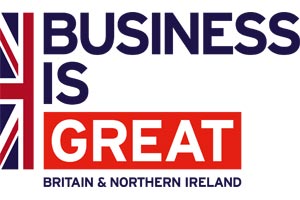Research released today shows that more than one in three would-be entrepreneurs (39%) say they think about starting a business every day, but 78% are afraid they’ll fail.
The research, which has been released by the Business is GREAT campaign to encourage those thinking of starting a business to take the leap, surveyed 1,000 would-be entrepreneurs – those who had thought about starting a business, but hadn’t. It found that the 18-24 year olds were most preoccupied with thoughts of starting a business – 52% of this group said they think about starting a business most days – while the 55+ age group were the least preoccupied, with only 24% of this age group admitting to having a daily obsession about a business they’ve never started.
Despite a strong desire to start a business – 41% of the respondents said that starting a business would be a greater achievement for them than raising a family; while 63% said it was one of their greatest ambitions – the research revealed a number of perceived barriers that were stopping them from turning their ideas into reality:
- Fear of failure was the overriding barrier (78% cited this).
- Lack of a mentor (70%); inspiration (60%); advice (60%); finance (69%) and concerns about finding a premises (50%) were also high on the list.
- Time was also a hindrance, with 62% stating that they couldn’t start a business because of time pressures from their existing job; as well as lack of family support, which 37% stated was a problem for them.
Business Secretary Vince Cable said: “The UK is Europe’s leading entrepreneurial nation and the Government is backing small firms as part of our industrial strategy to create long term jobs and grow the economy. Large companies also have a vital role to play in offering support and sharing their expertise with smaller companies wanting to grow.
“Over 2 million new businesses have launched since 2010 and I want to encourage all would-be entrepreneurs to visit the GREAT Business website and benefit from the wealth of advice and support that’s out there. I look forward to seeing more inspirational small businesses develop their dreams into a reality.”
Top Tips for Starting a Business
- Get some advice: The UK has a very supportive environment for start-ups, with networks, groups and organisations for all types and styles of new business. Visit www.greatbusiness.gov.uk/start for links to a wealth of sources of information, where you can get practical advice, ideas and make many valuable contacts.
- Don’t go it alone: Starting a business takes careful preparation and research. A business mentor can give you honest and constructive feedback, as well as provide useful contacts and pass on valuable experience. There are mentorship programmes to suit all kinds of businesses, including start-ups. Mentors Me offers businesses access to a list of quality-assured business mentoring organisations across Britain.
- Fund your idea: There are many forms of financial help that aim to support companies as they innovate and generate new ideas. These schemes range from tax reliefs and credits to grants and vouchers. For example Start Up Loans are available to businesses yet to launch or those that have been trading for up to 12 months. The scheme provides free business planning support as well as access to an expert mentor
- Find the right premises: Finding the right building and location for your business allows you to operate effectively and attract customers. Great Business has information about the key things to look for when choosing business premises as well as your obligations as a business tenant. You can also find out about business rate relief and how you can rent a Government office or workspace at low cost.
- Be inspired: Want to start your own business but think you need to have a brilliant idea? In actual fact many of the best entrepreneurs don’t have a new idea, they just build on existing ideas and make them appeal to the current market.
When asked about their motivations for starting up, flexibility (98%), happiness (91%), freedom (92%), the lack of a boss (95%) and the desire to feel successful (90%) were key motivators, while money (83%) came a little further down most people priorities lists.










